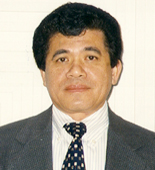US Immigration |
|||||||
| Posted 6/18/2008 | |||||||
| LEGAL NOTES / By REUBEN S. SEGURITAN | |||||||
Latest H-1B Developments |
|||||||
|
|||||||
|
Once again this year, U.S. companies faced the problem of not having
enough H-1B visas for their highly skilled workers. This is
particularly true of big U.S. tech companies such as Google which
reportedly failed to get H-1B visas for 90 of its 300 H-1B
applicants. That is roughly 1/3 of its total H-1B applications. Our
office was more fortunate in getting about two-thirds of our H-1B
applications selected in the random selection process. |
|||||||
|
Aside from not being chosen, some applications have been denied
outright due to technical deficiencies in submission as well as
duplicate filings which are prohibited. Some “duplicate” filings are
being reviewed on a case-by case basis to determine whether they
were merely re-submitted due to courier delivery confirmation
problems or mailed to incorrect service centers. The shortage of H-1B visas has recurred for the last five years when the annual cap for H-1B visas was exhausted even before the start of the fiscal year. The demand for H-1B visas has worsened over the years ever since the Congress reverted the H-1B numerical limits to 65,000 per year. Of these, 6,800 visas are set aside for Chileans and Singaporeans under Free Trade Agreements entered into between those countries and the U.S. |
 |
||||||
|
|
|||||||
|
20,000 visas are allocated to advanced degree holders or those with
Master’s or higher degree from U.S. academic institutions. USCIS
conducted the selection process for “advanced degree” exemption
petitions first and those not selected were included in the random
selection process with the other H-1B applications subject to the
65,000 limit. |
|||||||
|
This further reduced the number of H-1B visas to just about 58,200
visas to be drawn by random selection among the approximately
163,000 applications filed before the deadline of April 7, 2008.
Because of this unrealistic scenario, there is a renewed clamor for more H-1B visas to meet the severe shortage of skilled professionals. Technology companies have publicly complained of the need for more H-1B visas for them to be able to fill the labor gaps that are not being filled in the U.S. labor market so that they can hire more highly skilled workers to remain competitive and to prevent them from offshoring vital services. Several proposals were made in Congress including the one by Senators Barbara Boxer of California and Judd Gregg of New Hampshire. Their proposal seeks to allow foreigners who graduate in U.S. educational institutions to get their green cards provided they have a job offer. This was a companion bill to the one introduced earlier by Representative Zoe Lufgren that seeks to exempt STEM (science, technology, engineering and mathematics) advanced degree graduates from the yearly limit of 140,000 for employment-based immigrant visa. There was also a proposal by Congressman Anthony Wiener of New York not to lump international fashion models together with other specialty occupations to vie for the H-1B visas but to give them their own visa category since while they are considered skilled professionals, they do not require a Bachelor’s degree in their profession.
|
|||||||
|
|||||||
|
Terms of Use. Privacy Policy. Disclaimer.
|





 has been practicing law for over 30 years and is included in the Marquis Who’s Who in American Law. A former law editor and professor, he is also the author of a book on immigrant experiences. He has spoken in international and national conventions and has been interviewed on radio and television, including the ABC Nightly News. He has participated in meetings with White House staff and the Immigration Commissioner to discuss immigration reforms. For his community service and advocacy, he has received numerous awards in the U.S. and abroad. For more information, you may log on to his website at www.seguritan.com or call (212) 695-5281
has been practicing law for over 30 years and is included in the Marquis Who’s Who in American Law. A former law editor and professor, he is also the author of a book on immigrant experiences. He has spoken in international and national conventions and has been interviewed on radio and television, including the ABC Nightly News. He has participated in meetings with White House staff and the Immigration Commissioner to discuss immigration reforms. For his community service and advocacy, he has received numerous awards in the U.S. and abroad. For more information, you may log on to his website at www.seguritan.com or call (212) 695-5281